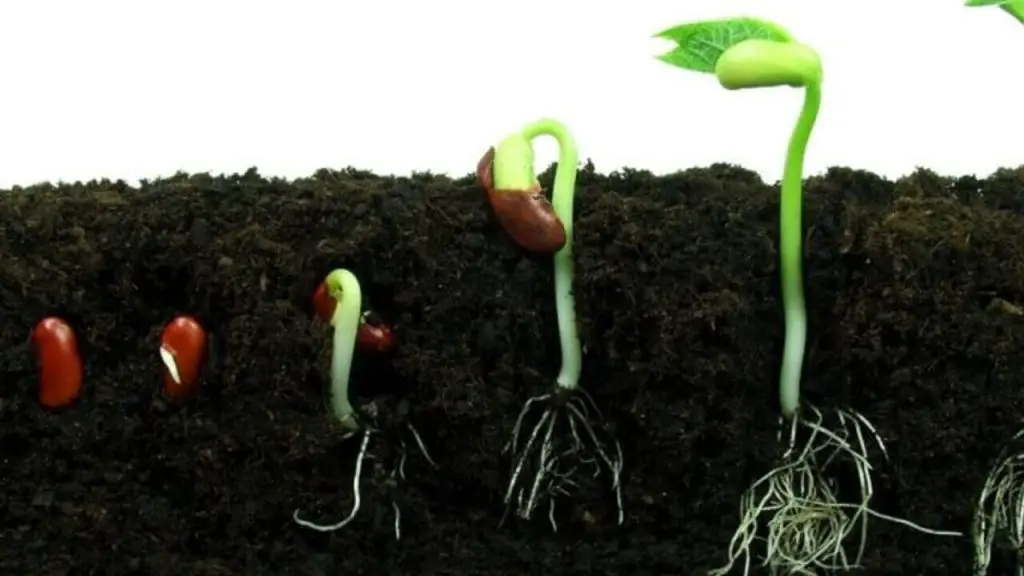There’s a lot of debate on how long for seeds to sprout in soil. Some people say you only need a few days, while others argue that it can take weeks.
So what’s the truth? How long does it really take for seeds to germinate and grow in soil? Let’s take a closer look at this question and find out.
What Types Of Soil Are Best For Growing Plants From Seeds?
There are many different types of soil, and each has its own advantages and disadvantages for growing plants. Some soils are very dense and hold water well, while others are light and sandy and drain quickly. Still, others are rich in organic matter and full of nutrients. So, which type of soil is best for growing plants from seeds?
The answer to this question depends on the type of plant you are trying to grow. For example, if you are trying to grow a fast-growing annual like corn or beans, you will need soil that is high in organic matter and drains well.
On the other hand, if you are trying to grow a slow-growing perennial like a rose or an oak tree, you will need soil that is dense and holds moisture well. In general, though, most plants do best in soil that is loose and loamy with good drainage. This type of soil is easy for roots to penetrate, and it retains just enough moisture to keep plants healthy without drowning them.
Of course, even the best type of soil will not magically make your plants grow. You also need to provide adequate sunlight, water, and nutrients. However, if you start with good-quality soil, you will give your plants the best chance of success.

How Do You Know When Your Seeds Are Ready To Be Planted In The Soil?
For many gardeners, one of the most exciting moments of the year is when the first seedlings appear. After weeks of waiting, it can be tempting to immediately transplant them into the soil. However, it is important to wait until the seedlings are big enough and the soil is warm enough before planting. Otherwise, the young plants may not thrive.
To determine when your seedlings are ready to be transplanted, start by observing their size. The seedlings should be several inches tall and have several sets of leaves. They are not yet ready to be transplanted if they are still small or only have a few leaves.
In addition to size, you’ll also want to pay attention to the temperature of the soil. The soil should be at least 60 degrees Fahrenheit before planting. Otherwise, the seedlings may not be able to establish themselves properly.
Once you’ve considered both size and temperature, you’ll be able to transplant your seedlings with confidence knowing that they will thrive in their new home.
What’s The Best Way To Plant Your Seeds In Order For Them To Germinate?
One of the most common questions gardeners have is how to best plant their seeds in order for them to germinate. While there are many different techniques that can be used, there are a few key things to keep in mind that will help ensure your seeds have the best chance of growing into healthy plants.
First, it’s important to choose the right type of soil. Seeds need loose, well-draining soil in order to germinate properly. The soil should also be rich in nutrients and moist but not wet. If your soil is too dense or compacted, it can impede root growth and make it difficult for seeds to break through the surface.
Second, it’s important to plant your seeds at the right depth. Generally, seeds should be planted at a depth that is two to three times their diameter. If they are planted too deep, they may not be able to reach the surface and may rot before they have a chance to germinate. If they are planted too shallowly, they may dry out before they have a chance to sprout.
Finally, after planting your seeds, it’s important to give them the right amount of water. Too much water can cause them to rot, while too little water can prevent them from germinating at all. The best way to water your newly planted seeds is with a fine mist, ensuring the soil stays moist but not saturated.
By following these simple tips, you can give your seeds the best chance of germination and ensure a healthy start for your garden.
How Long For Seeds To Sprout In Soil And Grow Into Plants?
One of the first things you need to do when you want to start a garden is to decide what kinds of plants you want to grow. Once you know what you want, you need to research how long it will take for your seeds to sprout and grow into plants.
The time it takes for a seed to germinate (or sprout) and then grow into a plant depends on many factors, including the type of seed, the conditions in which it is grown, and the care it receives.
For example, tomato seeds typically germinate within 5-10 days, while bean seeds may take 10-14 days. Once the seed germinates, it will then begin to grow into a plant. The amount of time it takes for a seedling to mature into a full-grown plant can also vary depending on the type of plant.
Some fast-growing plants, such as annuals, may only take a few weeks or months to reach maturity, while others, such as trees, can take years.
No matter what kinds of plants you want to grow, it is important to be patient and give them the time they need to reach maturity. With a little care and attention, your garden will soon be blooming with beautiful flowers or bountiful fruits and vegetables.
Latest Posts:



